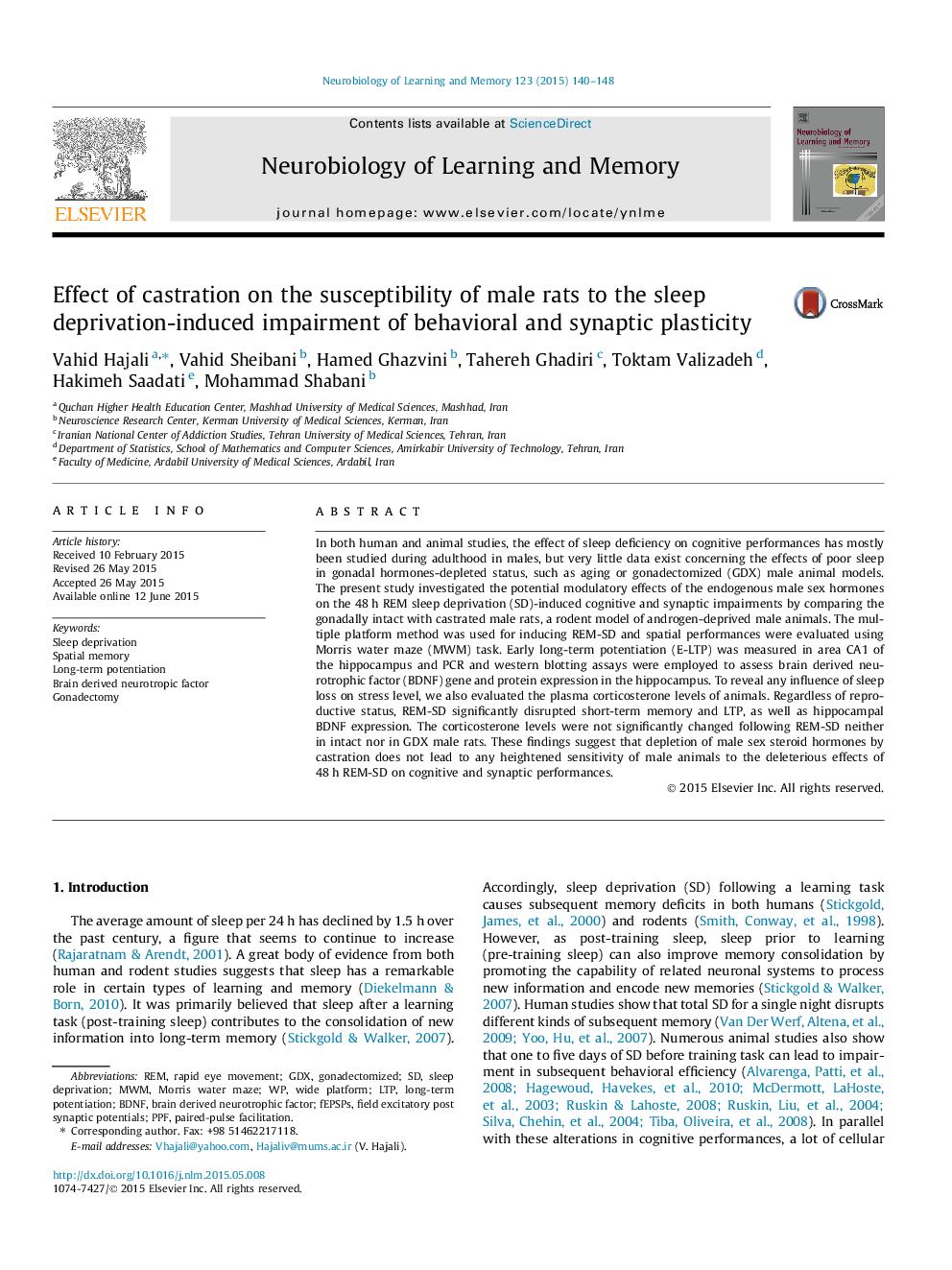| Article ID | Journal | Published Year | Pages | File Type |
|---|---|---|---|---|
| 936456 | Neurobiology of Learning and Memory | 2015 | 9 Pages |
•Regardless of reproductive status, SD impaired the spatial memory.•Regardless of reproductive status, SD impaired the hippocampal LTP.•Regardless of reproductive status, SD inhibited the hippocampal BDNF expression.•Plasma corticosterone levels were not significantly changed after SD.
In both human and animal studies, the effect of sleep deficiency on cognitive performances has mostly been studied during adulthood in males, but very little data exist concerning the effects of poor sleep in gonadal hormones-depleted status, such as aging or gonadectomized (GDX) male animal models. The present study investigated the potential modulatory effects of the endogenous male sex hormones on the 48 h REM sleep deprivation (SD)-induced cognitive and synaptic impairments by comparing the gonadally intact with castrated male rats, a rodent model of androgen-deprived male animals. The multiple platform method was used for inducing REM-SD and spatial performances were evaluated using Morris water maze (MWM) task. Early long-term potentiation (E-LTP) was measured in area CA1 of the hippocampus and PCR and western blotting assays were employed to assess brain derived neurotrophic factor (BDNF) gene and protein expression in the hippocampus. To reveal any influence of sleep loss on stress level, we also evaluated the plasma corticosterone levels of animals. Regardless of reproductive status, REM-SD significantly disrupted short-term memory and LTP, as well as hippocampal BDNF expression. The corticosterone levels were not significantly changed following REM-SD neither in intact nor in GDX male rats. These findings suggest that depletion of male sex steroid hormones by castration does not lead to any heightened sensitivity of male animals to the deleterious effects of 48 h REM-SD on cognitive and synaptic performances.
